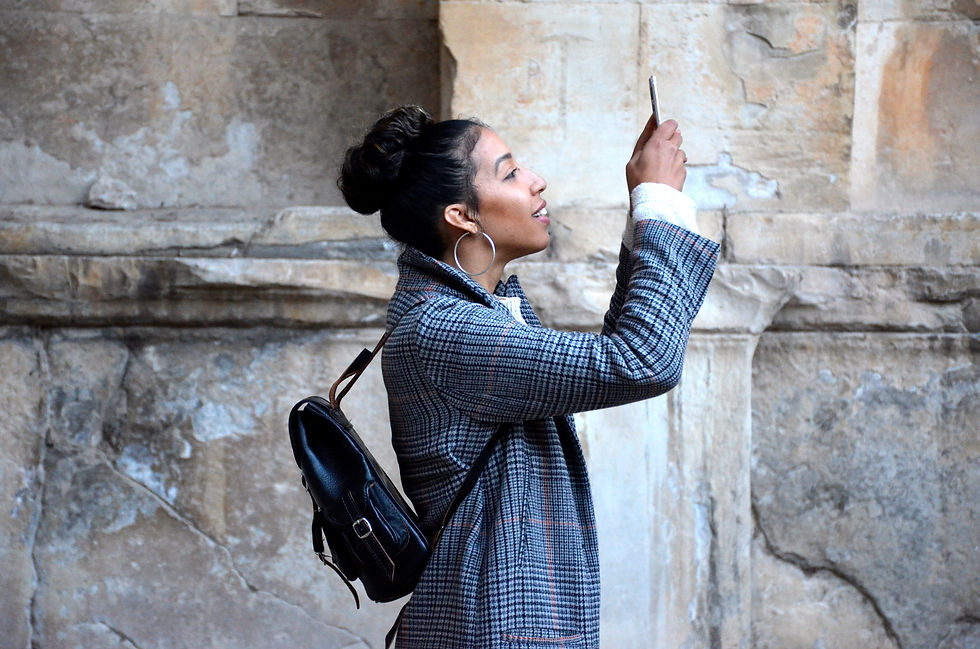
In an era dominated by digital interaction, the phenomenon of social anxiety has taken on new dimensions. Social media platforms, while designed to connect us, often increase our feelings of insecurity and inadequacy, especially in those who already suffer with social anxiety. The constant pressure to present a curated version of ourself online, together with comparing ourself to others, can intensify the burden of social anxiety for many of us.
Social anxiety disorder, characterised by overwhelming fear of judgment and negative evaluation in social situations, affects millions worldwide. While it’s a common misconception that social anxiety is simply shyness or introversion, it is, in fact, a complex mental health condition that can significantly impact one’s daily life. Symptoms range from physical manifestations like trembling and sweating, to psychological manifestations such as excessive self-consciousness and fear of humiliation.
Enter social media – a double-edged sword in the realm of social anxiety. On one hand, it offers a virtual space for those with social anxiety to interact with others from the safety of their screens, potentially easing some social pressures. However, the very nature of social media can also intensify feelings of anxiety and self-doubt.

The curated nature of social media profiles creates a distorted reality where individuals showcase only the highlights of their lives. Scrolling through a feed flooded with carefully filtered photos, extravagant holidays, and seemingly perfect relationships can trigger feelings of inadequacy and fuel the belief that everyone else is leading a more fulfilling life.
Plus, the quantifiable metrics of social media (likes, comments, followers, etc.) become benchmarks for validation and self-worth. Each post becomes a performance, subject to scrutiny and judgment, further perpetuating the fear of negative evaluation. The fear of missing out (FOMO) also plays a significant role, as constant exposure to social events and gatherings can amplify feelings of exclusion and loneliness in those who struggle with social anxiety.

The pressure to maintain an online persona that aligns with societal standards of beauty, success and happiness, can be overwhelming for individuals with social anxiety. The fear of being judged or criticised for not measuring up to these standards can lead to avoidance behaviour, where individuals withdraw from social media altogether or refrain from participating in online conversations, further increasing the feelings of isolation.
The anonymity and detachment created by social media can also hinder genuine social connections, making it difficult for individuals with social anxiety to develop meaningful relationships. Behind the screen, interactions lack the nuances of face-to-face communication, making it challenging to gauge social cues and navigate interpersonal dynamics.
So, how can we mitigate the detrimental effects of social media on individuals with social anxiety?
Firstly, being aware of, and understanding social anxiety as a legitimate mental health
condition is crucial. Educating people about the potential negative impact of social media on mental well-being can help reduce the stigma surrounding mental health issues and encourage empathy and support within online communities.

Secondly, promoting authenticity and vulnerability on social media can counteract the culture of perfectionism and comparison. Encouraging genuine interactions and celebrating imperfection can create a more inclusive and supportive online environment where individuals feel accepted for who they are.
Practicing mindful consumption of social media is essential. Setting boundaries, such as limiting screen time and unfollowing accounts that trigger negative feelings, can help individuals regain control over their online experiences and prioritise their mental health.
Seeking professional help and support networks can provide people with social anxiety the tools and resources to cope effectively with the challenges posed by social media. Cognitive-behavioral therapy (CBT), exposure therapy, and mindfulness techniques are among the many therapeutic approaches that can help individuals manage social anxiety and navigate online interactions more confidently.
While social media has revolutionised the way we connect and communicate, it also poses significant challenges for those of us with social anxiety. By developing awareness, promoting authenticity, practicing mindful consumption, and seeking support, we can reduce the adverse effects of social media and create a more inclusive and empathetic online culture.

Let’s strive to build virtual communities where everyone feels valued, accepted, and understood, regardless of their struggles with social anxiety.
Comments